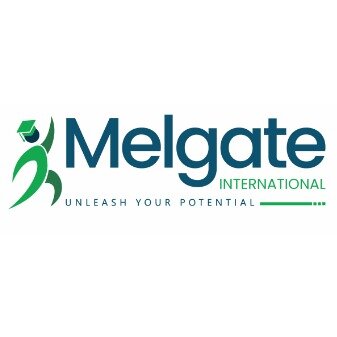Best Constitutional Law Lawyers in Sri Lanka
Share your needs with us, get contacted by law firms.
Free. Takes 2 min.
Or refine your search by selecting a city:
List of the best lawyers in Sri Lanka
About Constitutional Law in Sri Lanka
Constitutional Law in Sri Lanka pertains to the body of law which defines the role, powers, and structure of different entities within the state, namely the executive, the parliament, and the judiciary, as well as the basic rights of citizens. The current constitution, officially referred to as the Constitution of the Democratic Socialist Republic of Sri Lanka, came into effect in 1978. It establishes the framework for the government and guarantees fundamental rights to its citizens. Sri Lanka's legal system combines civil law, common law, and customary law, making constitutional law a complex yet crucial area of study and practice.
Why You May Need a Lawyer
There are several situations where individuals or entities may require legal assistance in matters related to Constitutional Law in Sri Lanka:
- Violation of Fundamental Rights: If you believe your fundamental rights have been infringed upon by the state or other entities.
- Constitutional Amendments: Guidance in understanding the impact of amendments to the constitution on existing laws or rights.
- Institutional Disputes: Legal issues involving the interpretation of constitutional powers between different arms of government.
- Human Rights: Situations involving alleged violation of international human rights treaties that Sri Lanka is a party to.
- Judicial Review: Seeking a review of legislative or executive actions for constitutionality.
Local Laws Overview
The key aspects of local laws in relation to Constitutional Law in Sri Lanka include:
- Separation of Powers: The constitution delineates the separation of powers between the executive, legislative, and judicial branches.
- Supremacy of the Constitution: The constitution is the supreme law, and any law inconsistent with it is null and void to the extent of its inconsistency.
- Fundamental Rights: Chapter III of the constitution enshrines fundamental rights which are enforceable by the Supreme Court.
- Directive Principles: Though not justiciable, these principles guide the government in policy-making.
- Decentralized Governance: The 13th Amendment provides for provincial councils, introducing a level of decentralized governance.
Frequently Asked Questions
What is the supreme law of Sri Lanka?
The Constitution of Sri Lanka is the supreme law, and all other laws and regulations must conform to it.
How can I enforce my fundamental rights?
Individuals can petition the Supreme Court if they believe their fundamental rights have been violated by executive or administrative actions.
What are fundamental rights as per the Sri Lankan Constitution?
These include equality before the law, freedom from discrimination, freedom of speech, and the right to life, among others.
Can the Constitution be amended?
Yes, the Constitution can be amended, but such changes require a two-thirds majority in Parliament. Certain amendments also require approval by a public referendum.
What is the role of the judiciary in Constitutional Law?
The judiciary interprets and ensures the application of constitutional provisions and resolves disputes over the constitutionality of laws or actions.
What is judicial review?
Judicial review is the process whereby courts examine the actions of the government to determine whether they are compliant with the constitution.
How does the constitution tackle the power distribution between the central government and provincial councils?
The 13th Amendment established provincial councils with powers over specific subjects while preserving the central government's supremacy.
What recourse is available for laws conflicting with the constitution?
Laws inconsistent with the constitution can be challenged in the Supreme Court for annulment to the extent of the inconsistency.
Are international human rights treaties enforceable in Sri Lanka?
While international treaties influence domestic law, they need to be incorporated into Sri Lankan law by legislation to be enforceable.
What are the rights of minorities under the Sri Lankan Constitution?
The constitution protects the rights of all citizens, including minorities, before the law and against discrimination.
Additional Resources
For further information and assistance, the following resources may be useful:
- Department of the Attorney General: Provides legal advice and representation to the state.
- Human Rights Commission of Sri Lanka: Offers guidance and addresses human rights concerns.
- Legal Aid Commission of Sri Lanka: Provides legal assistance to those unable to afford a lawyer.
- Lawyers specializing in Constitutional Law: Consulting a legal expert can provide tailored advice and representation.
Next Steps
If you need further legal assistance in Constitutional Law, you should:
- Consult a Lawyer: Reach out to a lawyer specializing in Constitutional Law who can offer expert legal advice.
- Gather Documentation: Collect all relevant documents and evidence that may support your case.
- Understand Legal Procedures: Familiarize yourself with the legal processes involved in filing a petition or a case.
- Reach Out to Relevant Bodies: Contact the Human Rights Commission or the Legal Aid Commission for additional support.
- Stay Informed: Keep updated with any changes in the law or recent legal precedents that may affect your matter.
Lawzana helps you find the best lawyers and law firms in Sri Lanka through a curated and pre-screened list of qualified legal professionals. Our platform offers rankings and detailed profiles of attorneys and law firms, allowing you to compare based on practice areas, including Constitutional Law, experience, and client feedback.
Each profile includes a description of the firm's areas of practice, client reviews, team members and partners, year of establishment, spoken languages, office locations, contact information, social media presence, and any published articles or resources. Most firms on our platform speak English and are experienced in both local and international legal matters.
Get a quote from top-rated law firms in Sri Lanka — quickly, securely, and without unnecessary hassle.
Disclaimer:
The information provided on this page is for general informational purposes only and does not constitute legal advice. While we strive to ensure the accuracy and relevance of the content, legal information may change over time, and interpretations of the law can vary. You should always consult with a qualified legal professional for advice specific to your situation.
We disclaim all liability for actions taken or not taken based on the content of this page. If you believe any information is incorrect or outdated, please contact us, and we will review and update it where appropriate.
Browse constitutional law law firms by city in Sri Lanka
Refine your search by selecting a city.

















